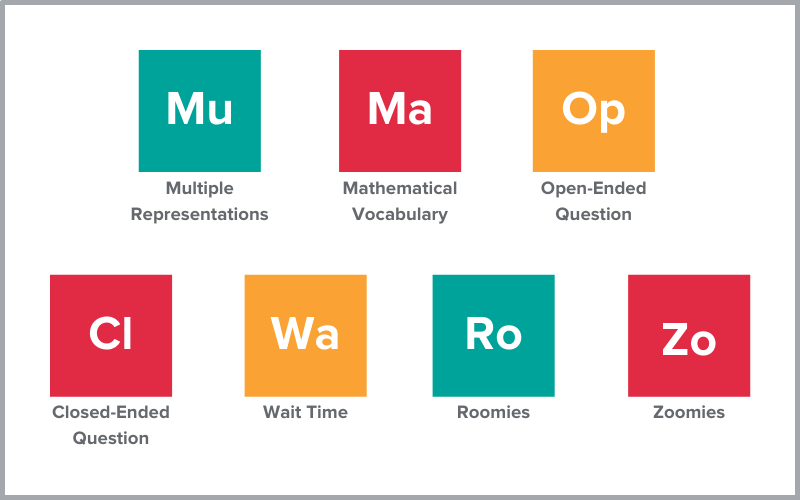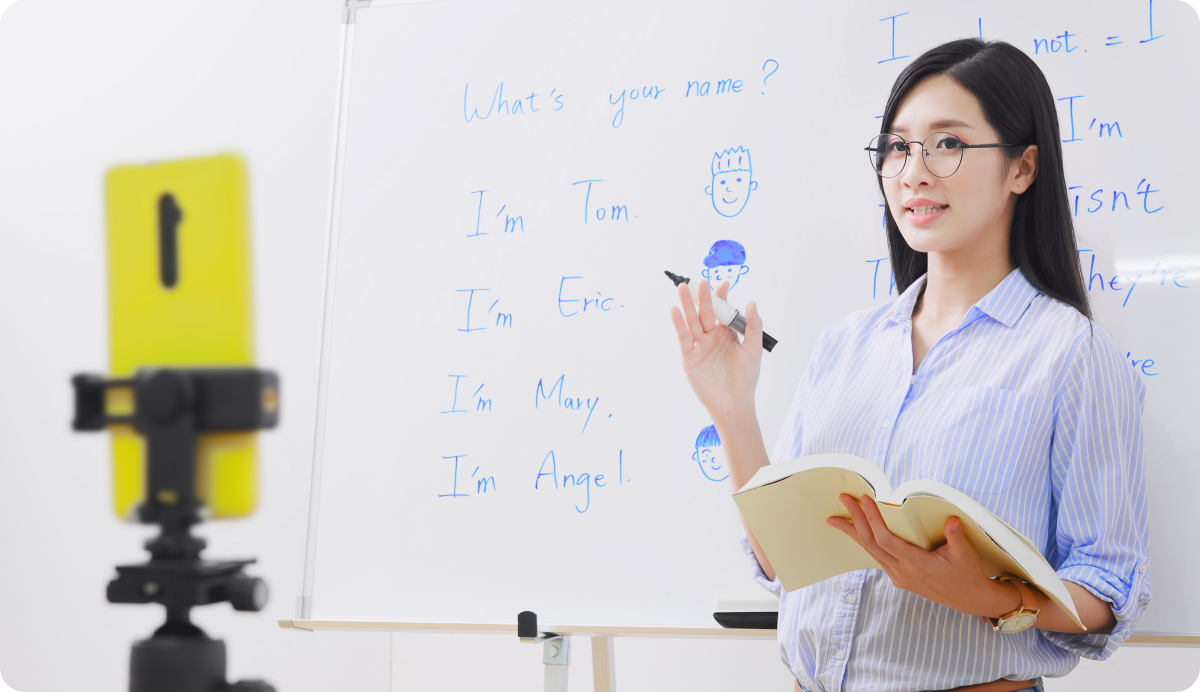Author: Jenna Menke, Ph.D. Candidate, Mathematics Education, University of Georgia
When the coronavirus pandemic struck in March 2020, our secondary mathematics teacher candidates at the University of Georgia Mary Frances Early College of Education began to panic. They worked with their mentor teachers to develop plans that would allow them to pivot to remote instruction and still complete the requirements for their clinical experience and supervision.
When it became evident that online teaching and learning was here to stay for the foreseeable future, our faculty advisor, Dr. Kelly Edenfield, began exploring digital platforms to aid in potential remote field experiences and student teaching supervision. We didn’t want a platform to replace our traditional clinical experiences, but we needed something that could meet the needs of current teacher candidates and possibly serve to improve supervision for future clinical experiences. This is how we landed on GoReact.
During the semester we implemented GoReact, I supervised the clinical teaching experiences of four teacher candidates in the secondary mathematics education program. Here’s a summary of how I started using the software to observe and provide feedback to teacher candidates—and how our program hopes to continue using it in the future.
Live Observations of Clinical Teaching Experiences
GoReact enabled teacher candidates to set up their phones or computers to live stream teaching lessons while I observed in real time from my home. Observing lessons from home alleviated some of my COVID-19 concerns and eliminated long travel times, which was vital time that I could use for other graduate student responsibilities.
During these live observations, I added markers and short comments. The feature for time-stamped feedback allowed me to return to these short comments after the lesson and expand upon them before sharing them with the teacher candidates, just as a supervisor does when physically present in the classroom.
Asynchronous Feedback
Teacher candidates also uploaded videos of lessons for us to watch and discuss at a later time. This proved helpful in numerous circumstances. As schools made frequent and rapid changes to adapt to the circumstances, teacher candidates often asked to change scheduled observation times. If I wasn’t available at this new time, they would record the lesson and upload it for me to watch later.
Normally, I would have been concerned with this delayed feedback because if lessons are not fresh in the teacher candidates’ minds, it’s difficult to discuss specific moments in the lesson. However, because my comments in GoReact were timestamped, the teacher candidates and I could easily watch the snippets of class I was referring to when offering feedback, a feature that was also helpful during live observation post-conferences.
Custom Marker Sets
GoReact provided many flexible tools that allowed me to gather the data I needed as a supervisor. One of those tools was a custom marker set. I created markers for observations based on areas the teacher candidates and I had discussed as needing improvement, as well as specific pedagogical actions they asked me to notice.
I also created marker sets centered around specific data I needed to collect as a supervisor. Some of the markers I found to be particularly helpful when observing mathematics lessons included:

The first two markers allowed me to highlight moments when teacher candidates took advantage of or missed opportunities to use precise mathematical vocabulary or to provide multiple representations (e.g., graphs, tables, equations). The latter five markers helped teacher candidates see what types of questions they were asking (open or closed), to whom they were asking them (students in the room or on Zoom), and how long they gave students to think about a question before saying more or moving on to a different student.
Future Uses
Going forward, we hope to continue using GoReact to observe and give feedback to teacher candidates. We’re also exploring new opportunities to use the software, including occasions for teacher candidates to give feedback on existing open source videos of professional practice as well as on videos of practice they create throughout their mathematics education program. This would create a professional learning community for teacher candidates to analyze and reflect on their own and their peers’ teaching.
On a broader level, Dr. Edenfield is also considering ways to use GoReact to provide training for university supervisors and to mentor teachers so they’re better prepared to provide our teacher candidates with high-quality support and feedback during their clinical teaching experiences.
About the Author: Jenna is a former high school mathematics teacher who is currently pursuing a Ph.D. in Mathematics Education from the University of Georgia. She is passionate about providing quality preparation for future K-12 mathematics teachers. In her free time, she enjoys being outdoors and traveling the country to visit old friends. This post is adapted from an article Jenna co-authored with Dr. Edenfield for the Association of Mathematics Teacher Educators (AMTE).







